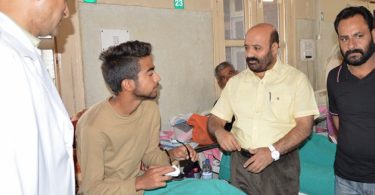The Homeopathy Central Council (Amendment) Bill, 2020 was passed by the Lok Sabha on 22nd September, 2020 and by Rajya Sabha on 18th September, 2020 and has amended the Homeopathy Central Council Act, 1973. The Act has replaced the ordinance which was promulgated by the President on April 24, 2020 under Article 123 of the Indian Constitution. The amendment has exceeded the time period of supersession of the Central Council from two years to three years.
The Central Council of Homoeopathy was superseded by promulgating the Homoeopathy Central Council (Amendment) Ordinance, 2018 and the Board of Governors were constituted in its place on 18th May, 2018 for a period of one year or till a new Central Council of Homoeopathy was reconstituted. The said Ordinance was replaced by the Homoeopathy Central Council (Amendment) Act, 2018 (23 of 2018).[1]
The Constitution of Board of Governors was constituted in a way to consist of 7 members which will include:
- persons of eminence in the field of homoeopathy education, and
- Eminent administrators, appointed by the central government.
The central government will select one of these members as the Chairperson of the Board. With regard to policy decisions, the directions of the central government will be final.
In 2019 the period of reconstitution of Central council was exceeded from one year to two years. The period of Board of Governors were extended from17 May, 2019 for one more year
The period of 2 years were supposed to expire in May , 2020 & the council was still not formulated, therefore to carry on the functioning of Council by Board of Governors , the ordinance was promulgated by the President to extend the supersession to 3 years. The Bill was later passed by the Parliament during monsoon session.
The Board of Governors was constituted because there were some problems in the way the Council Functioned. There were some serious repercussions in the quality of medical education & also there were claims of corruption made against the Council members, therefore the Board of Governors were established in the Council’s place to bring more transparency in homeopathy in the Country.
Justifying the extension Dr Harsh Vardhan, Minister of Health and Family Affairs said that, “”There was no register of homoeopathy practitioners in the country and therefore, the council could not be constituted. He government brought the national commissions for homoeopathy as well as ayurvedic systems…. They had to inspect the colleges in 2020…. They could not start functioning and Parliament was also not working due to COVID-19…. So this was the compelling reason (for bringing these bills) to ensure that the existing board of governors is able to carry out its duties”.
However the opposition parties criticized the inordinate delay in forming the Council and thus accused the Government of trying to take away the autonomy of the body and choosing the board members on their whims and fancies.
THE INDIAN MEDICAL COUNCIL(AMENDMENT) ACT, 2020
Indian Medicine Central Council (Amendment) Bill amends the Indian Medicine Central Council Act, 1970. The Act provides for the constitution of a Central Council which regulates the education and practice of the Indian medicine system including Ayurveda, Yoga, and Naturopathy. The bill replaces the Indian Medicine Central Council (Amendment) Ordinance, 2020 which was promulgated in April this year. It provides that the Central Council will stand superseded from April this year and the council will be reconstituted within one year from the date of its supersession. In the interim period, the Central Government will constitute a Board of Governors, which will exercise the powers of the Central Council. The Board will consist of up to ten members. The persons in the board must be experts in the field of medicine. The members can be either appointed/nominated and can be ex officio members.
The amendment has brought three new sections; 3A, 3B and 3C:-
3A. Power of Central Government to supersede the Council and to constitute a Board of Governors.—(1) On and from the date of commencement of the Indian Medical Council (Amendment) Act, 2010, the Council shall stand superseded and the President, Vice-President and other members of the Council shall vacate their offices and shall have no claim for any compensation, whatsoever.
(2) The Council shall be reconstituted in accordance with the provisions of section 3 within a period of 2 [three years] from the date of supersession of the Council under sub-section (1).
(3) Upon the supersession of the Council under sub-section (1) and until a new Council is constituted in accordance with section 3, the Board of Governors constituted under sub-section (4) shall exercise the powers and perform the functions of the Council under this Act.
(4) The Central Government shall, by notification in the Official Gazette, constitute the Board of Governors which shall consist of not more than seven persons as its members, who shall be persons of eminence and of unimpeachable integrity in the fields of medicine and medical education, and who may be either nominated members or members, ex officio, to be appointed by the Central Government, one of whom shall be named by the Central Government as the Chairperson of the Board of Governors.
(5) The Chairperson and the other members, other than the members, ex officio, shall be entitled to such sitting fee and travelling and other allowances as may be determined by the Central Government.
(6) The Board of Governors shall meet at such time and places and shall observe such rules of procedure in regard to the transaction of business at its meetings as is applicable to the Council.
(7) Two-third of the members of the Board of Governors shall constitute the quorum for its meetings.
(8) No act or proceedings of the Board of Governors shall be invalid merely by reason of—
(a) Any vacancy in, or any defect in the constitution of, the Board of Governors; or
(b) Any irregularity in the procedure of the Board of Governors not affecting the merits of the
case.
(9) A member having any financial or other interest in any matter coming before the Board of Governors for decision shall disclose his interest in the matter before he may, if allowed by the Board of Governors, participate in such proceedings.
(10) The Chairperson and the other members of the Board of Governors shall hold office during the pleasure of the Central Government.]
3B. Certain modifications of the Act.—1
[During the period when the Council stands superseded,—(a) The provisions of this Act shall be construed as if for the word “Council”, the words “Board of Governors” was substituted;
(b) The Board of Governors shall—
(i) Exercise the powers and discharge the functions of the Council under this Act and for this
Purpose, the provisions of this Act shall have effect subject to the modification that references
Therein to the Council shall be construed as references to the Board of Governors;
4 (ii) grant independently permission for establishment of new medical colleges or opening a new or higher course of study or training or increase in admission capacity in any course of study or training referred to in section 10A or giving the person or college concerned a reasonable opportunity of being heard as provided under section 10A without prior permission of the Central Government under that section, including exercise of the power to finally approve or disapprove the same; and
(iii) Dispose of the matters pending with the Central Government under section 10A upon receipt of the same from it.]
3C. Power of Central Government to give directions.—1[(1) Without prejudice to the provisions of this Act, the Board of Governors or the Council after its reconstitution shall, in exercise of its powers and in the performance of its functions under this Act, be bound by such directions on questions of policy, other than those relating to technical and administrative matters, as the Central Government may give in writing to it from time to time.
(2) The decision of the Central Government whether a question is a matter of policy or not shall be final.]
The rationale behind this amendment is that in 2016, the Supreme Court directed the Government to set up a committee for overseeing the functioning of MCI because of charges of corruption against them.
Therefore in order to bring transparency and accountability , it was decided to supersede the MCI through the Indian Medical Council (Amendment) Ordinance, 2018, promulgated on 26th September,2018 and entrust its affairs to a Board of Governors consisting of eminent doctors.




